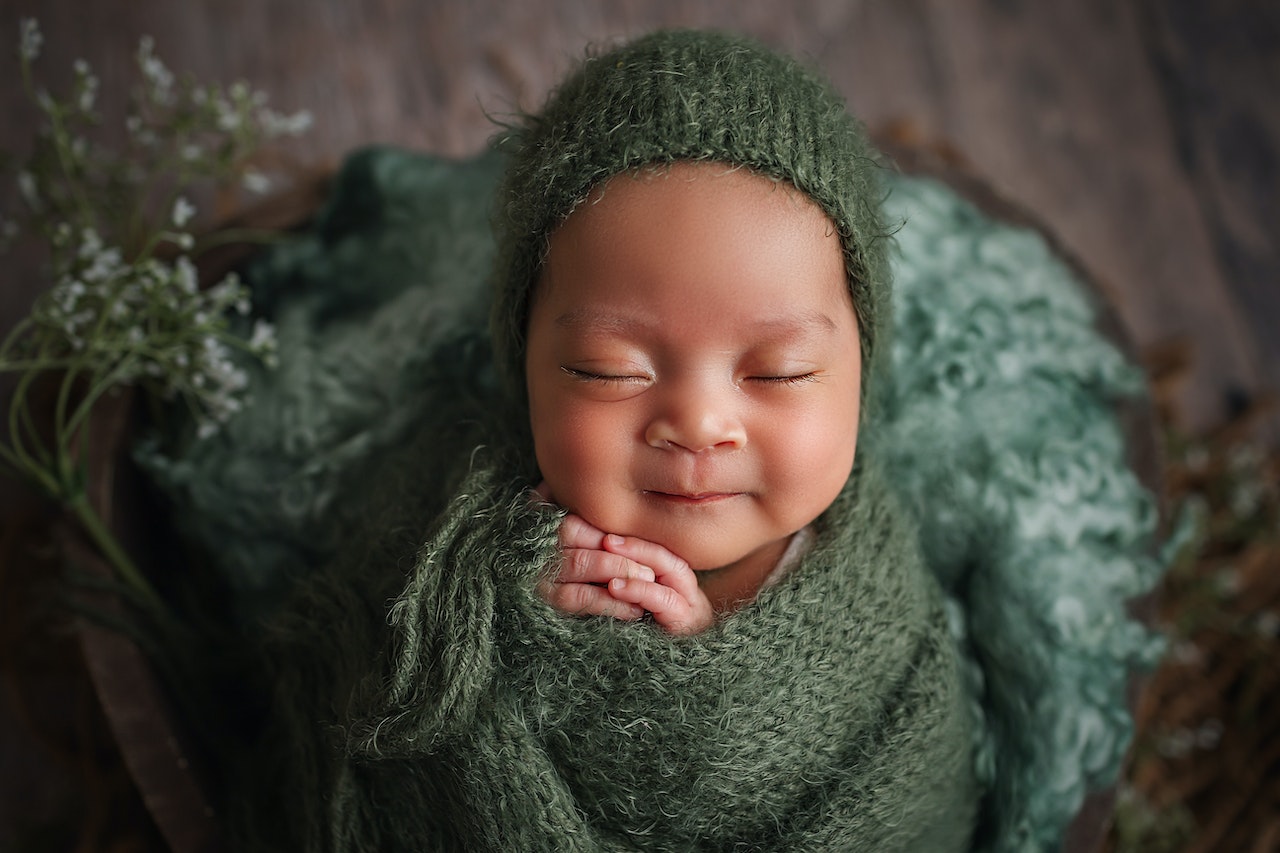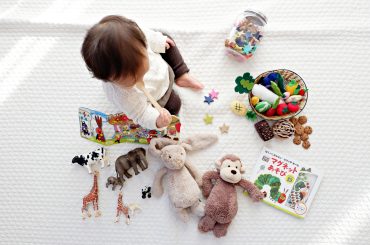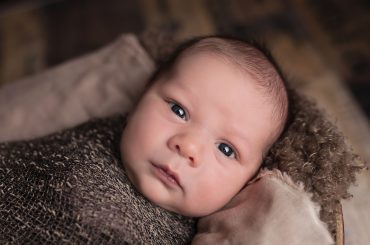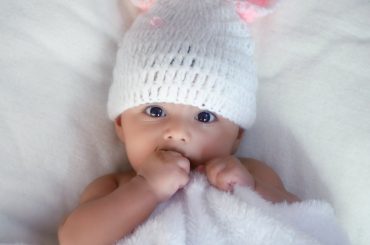Have you ever noticed babies smile in their sleep? In general, babies smile and cry while they are awake. But watching them smile or cry in their sleep is something interesting. So, Why Do Babies Smile In Their Sleep?
In our previous article, ‘Why Do Babies Cry in Their Sleep?’, we brought up several reasons why babies cry during their sleep. Here, in this article, we will learn similar and different reasons for babies to smile while sleeping.

Contents
What is a Smile, and Why Do Babies Smile In Their Sleep?
A smile is a facial expression formed via flexing the muscles at the sides of one’s mouth. This particular expression conveys amusement, delight, joy, sociability and happiness. In other words, a smile is one type of communication.

In daily life, adults and grown-ups smile deliberately or as a result of instant action. But babies’ smile when they sleep is not similar to the general adult smiles. Babies smile either in response to social stimulation or as part of an involuntary reflex due to gas. You may be surprised and excited to see your baby’s first smile while awake. If you happen to capture his/her smile, it will be an unforgettable memory to cherish.
However, babies do smile while they are asleep too. In this article, let us learn ‘Why Do Babies Smile In Their Sleep?’.
Reasons For Babies to Smile in Their Sleep
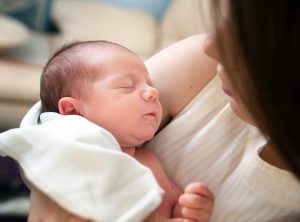
Even though babies often smile in their sleep, a precise and accurate reason has yet to be pointed out. Hence, the exact reason is beyond imagination until more research is done. Up to now, there are several reasons for their smile during sleep. Their sleeping smiles may vary due to the baby’s age and the sleeping stage.
Rapid Eye Movement (REM) or Active Sleep
When someone asks, ‘Why Do Babies Smile In Their Sleep?’ one primary reason for their smiles during sleep is Rapid Eye Movement (REM). This is often noticed among the vast majority of newborns. Their eyes move rapidly during their sleep as they would during a dream. Some experts suggest that adults, too, smile in response to positive dream imagery. I hope some of you have the experience. However, it is difficult to conclude whether this is also true in the case of babies.

As I mentioned earlier, babies pass several stages of sleep in their sleep cycle.
1. Quiet sleep
2. Indeterminate sleep
3. Active sleep
The last stage of active sleep is similar to the Rapid Eye Movement or (REM) sleep stage, which is noticed in adults during sleep.
What happens during REM sleep?
A few changes take place during REM sleep.
- Brain waves speed up
- Eyes move rapidly beneath closed eyelids
- Most of the muscles are temporarily paralyzed
- Hence, the person does not move while dreaming
What is the difference between adult REM Sleep and Active Sleep?

Unlike adults in their REM Sleep, infants are not paralyzed during active sleep. Generally, infants show movements, including sucking motions, smiling, crying, frowning, moving their limbs and twitching etc. it is interesting to note that some people have observed that newborn babies make faces with complex expressions during their sleep. A baby’s very first smile may occur during his sleep.
More info ‘Why Do Babies Smile In Their Sleep?’
In some of the former research, it was discussed that infant smiles during sleep are reflex-like. Furthermore, these studies suggest that smiles during active sleep are generated in the cerebral cortex or the outer part of the brain.

Moving on, another concern over baby smile is a gelastic seizure, a scarce type of seizure. It causes people to smile without control. However, gelastic seizure for a baby is a less common phenomenon. However, a baby is likely to experience a gelastic seizure when he is on the brink of falling asleep. If there is a gelastic seizure during a baby’s sleep, he will wake up and go back to sleep by the end of the seizure (within 10 or 20 seconds)
When Do Babies Start to Smile?
When talking about ‘Why Do Babies Smile In Their Sleep?’, knowing when they start smiling is essential. They may smile soon after birth. Unlike a grown-up man who can determine or decide when to smile, a newborn’s smile is usually a reflexive response to an internal physical feeling (hunger or gas). But as experts or experienced adults, we cannot ignore babies’ smiles, considering it a response to a physical feeling. Who can be sure that a newborn baby’s smile conveys some meaning about his emotions?

Understanding and comprehensively reading a baby’s smile (whether asleep or awake) is more complex than reading the reasons behind an adult’s smile. Even though I mentioned that a baby’s smile might start anytime after birth, their first full smile is shown when they reach approximately two months old. Because this time, they feel the need to interact with their caregivers and show social smiles.
As learned so far, REM sleep is different from a social smile. Often REM sleep is spontaneous rather than a deliberate social smile. In many instances, spontaneous smiles carry a closed mouth, while social smiles are featured an open mouth.
How to Make a Baby Smile?

In the end, you might find it interesting to learn how to make your baby smile. Seeing your baby smile is peaceful, and you can encourage him to smile by following these steps.
1. First, you can try smiling at the baby
2. Making funny faces and sticking out your tongue at him
3. Reading and singing to the baby
4. Tickling the baby slightly
5. Returning the smile, they offer you
A final word on ‘Why Do Babies Smile In Their Sleep?’
A baby’s smile is an essential social tool that helps them communicate positive emotions and bond with their caregiver. Babies notice when their caregivers are paying attention to them, and a smile may be their response. Primary caregivers and siblings may receive more smiles, while extended family and friends may need to wait until the baby warms up to them first.
These moments can be incredibly wholesome, so wanting your baby to smile often is understandable. At the same time, it’s certainly okay if your baby doesn’t smile as often as you’d like them to; you can follow my tips to make him smile and interact with you.
READ MORE
Which way do babies roll first?: Best Parenting Tips for 2023

